U Thant, Burmese diplomat and the third Secretary-General (SG) of the United Nations from 1961 to 1971, was a strong proponent and practitioner of "preventive diplomacy" the man who practically experienced this most difficult duty, by putting the world deeply in his debt when he played a crucial mediatory role in diffusing Cuban Missile Crisis and abating Congolese civil war. Ban Ki-Moon himself as UN's eighth Secretary General, the South Korean politician who took office on 1 January 2007, and is due to end his second term on December 31, 2016, after being 10 years in this position, describes United Nations a dream which has become a nightmare.
United Nations, a dream or nightmare?
Playing the role of "father confessor" to the UN's Member States, is the next description in which can be utilized for Egyptian politician, Boutros Boutros Ghali, who became the sixth SG of the UN (1992-1996). Conversant and effective notwithstanding, he was caught in a rift between the United States and the United Nations and this led him a controversy between administrative and political. "The greatest, although it is the least advertised of the functions of the Secretary-General is to be a father confessor to the member governments, to be a man in whom they can confide, and who knows, therefore, from continued, private, privileged information, the real position in an international controversy," Walter Lippmann, the author of "Public Opinion" the founding book in American media studies, wrote.
"World moderator", is the other description of this post, which was coined by 32nd United States President (1933-1945), Franklin Delano Roosevelt, many years prior to the UN's creation. This prediction materialized at a time the UN charter alluded to it as "chief administrative officer" in Article 98. For this style of management, we can name the seventh Secretary-General of the United Nations (1997-2006), Kofi Atta Annan a Ghanaian diplomat who can be categorized within President Roosevelt's framework as "world moderator" style Secretary General. Actually, as Roosevelt outlined, secretary-general's schedule is consumed by a mixture of 'futile Diplomatic rituals' that has been outlined in Article 98 and 'urgent crises' which has been detailed in Article 99 of the UN charter. Therefore, the prominent part of the Schedule to this position of SG of the United Nations, which is purely political and is the distinguished part of this post, has been summarized in Article 99 of the United Nations' charter.
Considering this, amongst concise list of articles (97-101) in the UN charter assigning functions to the SG, Article 99 has been considered the most influential article that precisely gives the SG dominant political power. Having regard to the words of Article 99, which announces that "the Secretary-General may bring to the attention of the Security Council any matter which in his opinion may threaten the maintenance of international peace and security," it should be noted that, this article permits and grants the Secretary-General the power of 'preventive Diplomacy' to oblige the Security Council to talk certain crises they may threaten world peace and security.
Secretary or General, that's the question
In the book "Secretary or General", Simon Chesterton and Thomas M. Frank say the holder of this post is occasionally treated as "an errand boy and punching bag," expected to be simultaneously an independent political force and a public servant. Actually, the dilemmatic issue here is about the ambiguous nature of the position of the Secretary-General, because this is a position which is like a path that forked off in two directions: the duty of "Secretary" and "General." "A Secretary-General is like a Supreme Court justice, you never know what you're going to get" Lee Andrew Feinstein, a former senior official in the Obama and Clinton administrations and the United States ambassador to Poland from 2009 to 2012, said. "We should be more modest in our words, but not in our performance" Ban Ki-moon said in his acceptance speech in October 3, 2006. "The true measure of success for the UN is not how much we promise, but how much we deliver for those who need us most" he added.
Article 98 or 99 of the UN Charter?
Since the UN establishment, the Secretary-General responsibilities has often been bifurcated in two seperate directions: Article 98 which assigns purely administrative functions to the SG, and Article 99 that is completely political. So, under Article 99 of the charter SG responsibility is to work in conflict prevention and averting tensions into war by the use of his "good offices" with the help of "preventive diplomacy", peacemaking and peacekeeping via helping to restore stability when armed conflict breaks out, and peace building via mediation to encourage lasting peace in communities emerging from years of instability and chaos. In this regard, chapter XV, article 99 of the UN charter, neither grants power to UN Member States nor a group of those states, but it just gives power to the SG to maintain peace and stability to the whole world. But the question is why Mr. Ban didn't formally invoke this article in the case of Middle Eastern war-torn countries (e.g., Syria, Yemen, Iraq, and Palestine)? In the United Nations' history, we do have just experienced three times formally invoking of this article. Strictly speaking, article 99 was invoked only triple in the United Nations' history, the first time by visionary Dag Hammarskjold in 1960, the second time by Kurt Waldheim in 1979, and for the tertian by Javier de Cuéllar in 1989.
Invocations of Article 99 in the UN Security Council
On 13 July 1960, proactive Swedish economist and diplomat, Dag Hjalmar Agne Carl Hammarskjöld, the second secretary-general of the United Nations (1953-1961) - who has been regarded as the best Secretary-General of all the time and was called by the then president John F. Kennedy as the greatest statesman of 20th century - for the first time practically used 'preventive Diplomacy' for the first time, via explicitly invoking Article 99 in order to maintenance stability in the Republic of Congo in response to emergency request of help which was made by the Congolese government to intervene. In this view, Dag Hammarskjold was the first SG who made a legal case defending this extended interpretation of Article 99. In light of his argument, he said that "Article 99 not only confers upon the Secretary-General a right to bring matters to the attention of the Security Council but that this right carries with it, by necessary implication, a broad discretion to conduct inquiries and to engage in diplomatic activity in regard to matters which may threaten the maintenance of international peace and security.” During Security Council's emergency meeting which took place following day, Member States adopted resolution of 143 in order to launch a massive peacekeeping mission, subsequently, the consequences of this meeting was exactly in line with the wishes of the man who predominantly executed his duties in a visionary manner as Secretary-General.
On 4 December 1979, the UN's Security Council, in response to Austrian politician and diplomat Kurt Josef Waldheim's call - the fourth Secretary-General of the United Nations (1972-1981) - adopted resolution of 457, in order to quell the ongoing Iranian-American embassy crisis. This was for the second time since 1960, UN's Secretary-General, utilized his power to invoke Article 99. Waldheim stated that in his opinion, "tension has now escalated to such an extent that a threat has been created not only to the peace and stability to the region but to the entire world." In response, Iranian revolutionary students declared that the US embassy personnels would not be released until deposed Shah Mohammad Reza Pahlavi, who was receiving medical treatment in New York Hospital-Cornell Medical Center, must be returned to Iran to stand trial. Ultimately, Waldheim’s actions in regards to this crisis had precisely been reflected his managerial leadership style, when he declared that "the Security Council be convened urgently in an effort to seek a peaceful solution to the problem in conformity with the principles of justice and international law."
It was August 15, 1989, that the last but not least UN's fifth Secretary-General explicitly invoked Article 99 of the charter in connection with Lebanon's 14 years of civil war and conflict. This explicit invocation of this little-used article for the third time, took place under leadership of Peruvian diplomat Javier Felipe Ricardo Pérez de Cuéllar who served this post as the fifth Secretary-General from 1982-1991. In a letter to the Security Council President, the Secretary-General de Cuéllar noted that violence in and around Beirut “had escalated to a level unprecedented in fourteen years of conflict.” He stated his opinion that an effective cease-fire is imperative: “in my opinion, the present crisis poses a serious threat to international peace and security. Accordingly, in the exercise of my responsibility under the charter of the United Nations, I ask that the Security Council be convened urgently ...” Finally, this civil war ended up after 15 and a half years on 13 October 1990.
Ban Ki-moon and his Beleaguered Legacy
In conclusion, these three historical turning points in UN's history (Congo 1960, Iran 1979 and Lebanon 1989), shows that the UN's main mission in the 20th century was to help crisis-ridden countries and to stop countries from waging war each other. But, the 21th century is totally different from the previous one, at this new millennial the obvious intention is to reinforcement the inter-state system of countries to such a degree that humanity would be able to live in a prosperous world amidst new challenges. Considerng this, it desrves very wide attention that, why current SG couldn't bring the Middle East back to Life? Like these triple historical years that mentioned above, the year of 2015 [and 2014] was/were one of the most "troubled and turbulent years in recent history," according to Ban Ki-Moon, which confessed at the start of an open debate in the UN Security Council in New York on 15 September 2016, about “Respect for the principles and purposes of the Charter as a key element for the maintenance of international peace and security.” Therefore, the question is why did Ban Ki-moo favour to walk on the Article 98 road, instead of walking in the line of Article 99? At a time, imposed wars ravaging (e.g., Syria, Yemen, Palestine, and Iraq) why did Mr. Ban like most of UN's former Secretary-Generals use the right to negotiate and to engage in hollow diplomatic rituals? Why did SG Ban Ki-moon choose the right to be a 'father confessor' instead of issuing "early warning" statements in Security Council hall for invocation of Article 99 on war-torn nations and countries in the Middle East? It does seem that, acting in the field of administrative functions of this position, and collecting of evidences related to world scale crises and referring these informations to the Security Council (SC) in a more informal way, have become central duties of the eighth Secretary-general. In this sense, we do understand that why does Article 99 have actually been cited only triple since 71 years of founding the UN organization.
Abbas Torabi has done his MA in North American Studies in Faculty of World Studies, University of Tehran.

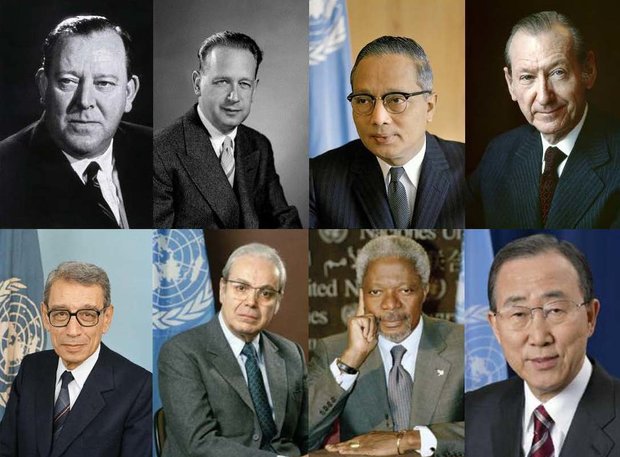
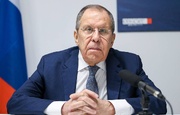

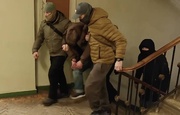
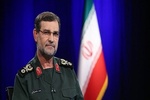
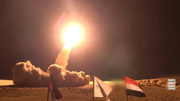
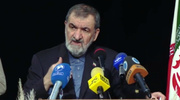
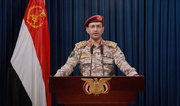
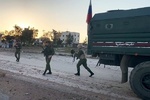
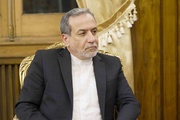
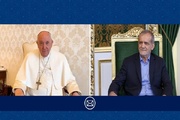
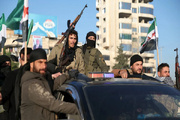


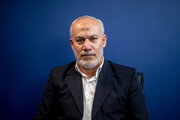

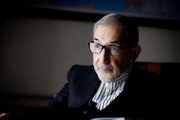
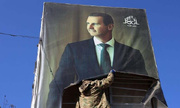

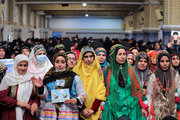


Your Comment